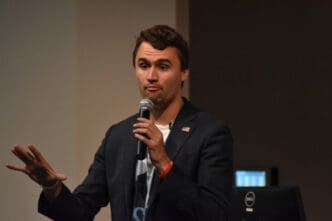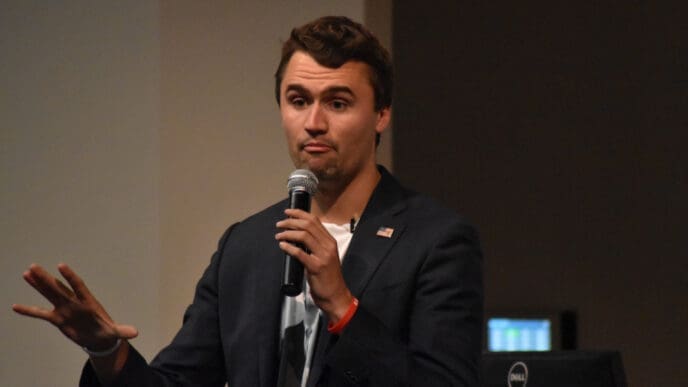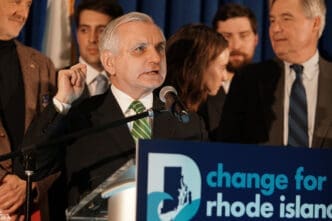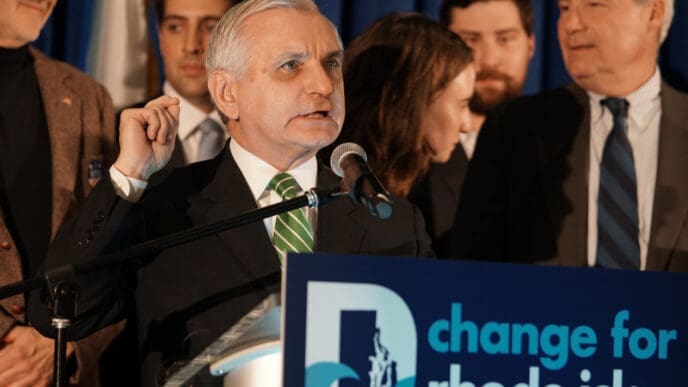Executive Summary
The Story So Far
Why This Matters
Who Thinks What?
The assassination of conservative political commentator Charlie Kirk on Wednesday at the age of 31 has prompted widespread grief and sparked a national conversation about the state of American political discourse. His death has amplified calls from politicians, pundits, and free speech advocates to de-escalate rhetoric and resolve differences through dialogue rather than violence, while also highlighting deep divisions within the country.
Calls for Dialogue and De-escalation
In the wake of Kirk’s death, many are turning to his own words for comfort and guidance. An undated clip of Kirk discussing his “Prove Me Wrong” events on college campuses has gained significant traction, with Kirk stating, “When people stop talking, that’s when you get violence.” He warned that a cessation of dialogue could lead to civil war by dehumanizing the opposing side.
The New York Post’s front page featured a similar quote from Kirk: “What we have to get back to is being able to have a reasonable disagreement where violence is not an option.” Additionally, a comment from last June by Kirk, urging people to “stay grounded” during stressful times and remember “internet fury is not real life,” has been widely shared.
Nico Perrino of the Foundation for Individual Rights and Expression emphasized Kirk’s legacy of fostering debate. Perrino stated on “CNN This Morning” that Kirk “created platforms not just for himself to express his political opinion, but for others to express theirs as well.” He added, “Free speech is what we do instead of violence,” advocating for public debate over armed conflict.
Veteran conservative organizer Matt Schlapp echoed these sentiments on Newsmax and X, encouraging young people to continue fighting for their beliefs but “in a way where at the end of the day, you can go have a cup of coffee with someone who you disagree with.” Entertainers have also joined the calls for a collective lowering of political temperatures, with Stephen Colbert opening “The Late Show” by condemning political violence and expressing hope that Kirk’s death was an isolated incident.
Polarizing Figure and Divergent Reactions
Kirk was a deeply polarizing figure, attracting a large conservative following while drawing strong criticism from liberals. His final public comments included an X post lamenting that “America will never be the same” after the Charlotte train stabbing, and an appearance on Mark Halperin’s show where he described America as a violent country in need of “more prisoners, and we need more prisons.”
While some corners of the political spectrum have responded with calls for unity, others have reacted with anger. Axios reported that “heartbreak over Kirk’s killing turned swiftly into rage” within certain segments of the MAGA ecosystem. Wired noted that some extremist groups are reportedly advocating for “civil war and violent retribution.”
Rhetoric professor Matthew Boedy, whose upcoming book critically examines Kirk as a “new face of Christian nationalism,” expressed concern, stating, “we crossed a line in our nation yesterday and I can only think we will cross more.” Boedy also described President Trump’s Wednesday night comments about the “radical” left as “disturbing.”
Mounting Security Concerns
The assassination has intensified concerns over political violence and security for public figures. Many leaders within conservative media have highlighted the threats they regularly receive. Multiple media organizations are reportedly reevaluating their security protocols in the wake of the shooting.
Conservative radio host Ben Shapiro, who had previously discussed shared security concerns with Kirk, expressed profound despair. “I do not know what this means for America, truly,” Shapiro said, questioning the future when “political figures who just are out to discuss and debate in public are gunned down in cold blood.”
Charlie Kirk’s death has thus become a pivotal moment, prompting a national reckoning on the future of American political discourse, the boundaries of free speech, and the alarming potential for escalating violence in a deeply divided nation.














